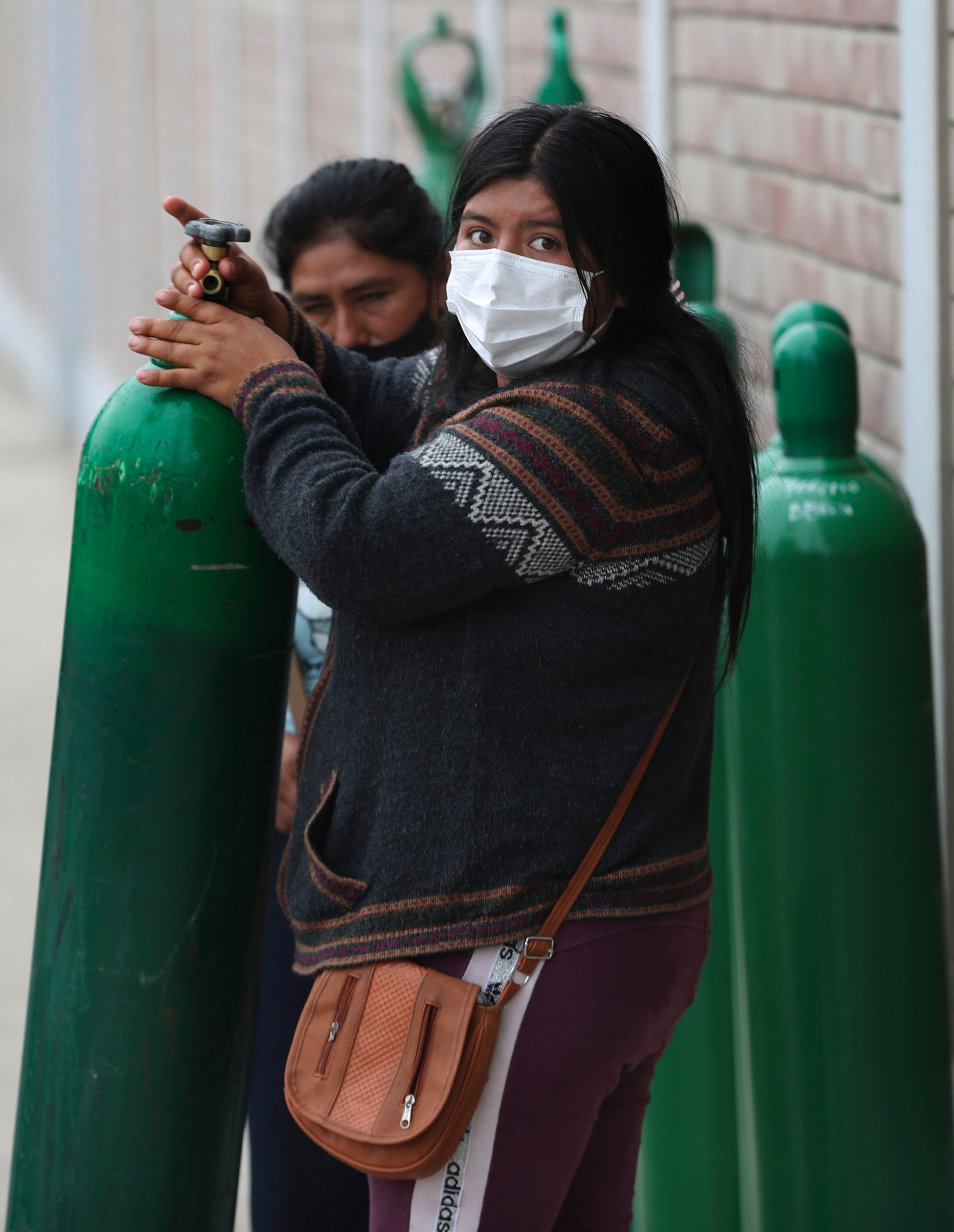Search for oxygen tank refills routine for Peruvians
A new routine has emerged for many of the residents of the densely populated city on the outskirts of Peru's capital

In the middle of what was once a sandy desert on the outskirts of Peru’s capital, a new routine has emerged for many of the residents of the densely populated city of Villa El Salvador.
With the lives of friends or relatives at stake because of the new coronavirus, people are spending their days searching for a place to buy oxygen, preferably without having to spend their life savings.
Oxygen is crucial to save the lives of those critically ill with COVID-19. And in this city of more than 508,000 people, it has become a scarce commodity just as a second wave of coronavirus infections hits the South American country.
“It’s so sad to see that all people go through this,” Noa Torres, 34, said Thursday outside a facility that sells oxygen. “It is sad to see that not only I, all people, are waiting for oxygen for their family.”
People are carrying empty oxygen tanks, bought in the black market, around town, hoping to find a place to fill them. The hunt for oxygen is in part the result of the government’s lack of preparedness to handle the pandemic. Most of the hospitals in Peru do not have the equipment necessary to produce oxygen.
The desperation for oxygen has led some businesses to triple its price, forcing many to plunder their savings or sell belongings to afford it.
But while some are price gauging, others are stepping in to help. In Villa El Salvador, a group of 13 friends, among them engineers, economists and lawyers, pooled their savings to recently open an oxygen plant. At their facility, a cubic meter of oxygen sells for $4.10, while other places charge up to $13.69 for the same amount.
The young entrepreneurs say they are not trying to profit off of COVID-19, they just want to help the most vulnerable population in Lima. Their plant has drawn people from all corners of the city since it opened, with the lemon green tanks lined up on the sidewalk.
“Everyone has gone through the disease,” Juan Carlos Urbano, 45, said referring to his family while he waited to refill a tank outside the entrepreneurs’ facility. “Right now, there are four who are ill and one who is in serious condition and in need of oxygen. Most of the families I think are in this situation.”
Peru has tallied more than 1 million cases and over 39,000 deaths of COVID-19, according to data from Johns Hopkins University.
Developing nations often lack the reliable supply of medical oxygen found in wealthy Europe and North America, where it is delivered in liquid form by tanker truck and piped directly to the beds of coronavirus patients.
But even in Los Angeles, a recent surge of coronavirus cases overwhelmed clinics and created a shortage of oxygen that led to a directive for ambulance crews to stop transporting patients they can’t revive in the field.
Parts of Peru, Bolivia, Mexico and Brazil also have suffered periodic shortages of oxygen as COVID-19 peaked at various times in recent months.
The Peruvian government on Thursday unveiled new oxygen-production equipment to assist hospitals across the country.
“Oxygen is life and these machines will bring life to various regions of our country, and they will continue working to ensure that health and the right to life is something concrete and real for all Peruvians,” President Francisco Sagasti said during the unveiling ceremony.
Bookmark popover
Removed from bookmarks